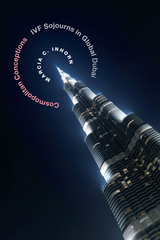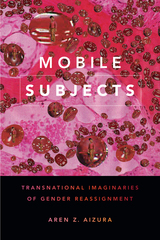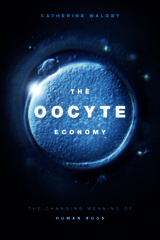3 books about Medical tourism

Cosmopolitan Conceptions
IVF Sojourns in Global Dubai
Marcia C. Inhorn
Duke University Press, 2015
In their desperate quest for conception, thousands of infertile couples from around the world travel to the global in vitro fertilization (IVF) hub of Dubai. In Cosmopolitan Conceptions Marcia C. Inhorn highlights the stories of 220 "reprotravelers" from fifty countries who sought treatment at a “cosmopolitan” IVF clinic in Dubai. These couples cannot find safe, affordable, legal, and effective IVF services in their home countries, and their stories offer a window into the world of infertility—a world that is replete with pain, fear, danger, frustration, and financial burden. These hardships dispel any notion that traveling for IVF treatment is reproductive tourism. The magnitude of reprotravel to Dubai, Inhorn contends, reflects the failure of countries to meet their citizens' reproductive needs, which suggests the necessity of creating new forms of activism that advocate for developing alternate pathways to parenthood, reducing preventable forms of infertility, supporting the infertile, and making safe and low-cost IVF available worldwide.
[more]

Mobile Subjects
Transnational Imaginaries of Gender Reassignment
Aren Z. Aizura
Duke University Press, 2018
The first famous transgender person in the United States, Christine Jorgensen, traveled to Denmark for gender reassignment surgery in 1952. Jorgensen became famous during the ascent of postwar dreams about the possibilities for technology to transform humanity and the world. In Mobile Subjects Aren Z. Aizura examines transgender narratives within global health and tourism economies from 1952 to the present. Drawing on an archive of trans memoirs and documentaries as well as ethnographic fieldwork with trans people obtaining gender reassignment surgery in Thailand, Aizura maps the uneven use of medical protocols to show how national and regional health care systems and labor economies contribute to and limit transnational mobility. Aizura positions transgender travel as a form of biomedical tourism, examining how understandings of race, gender, and aesthetics shape global cosmetic surgery cultures and how economic and racially stratified marketing and care work create the ideal transgender subject as an implicitly white, global citizen. In so doing, he shows how understandings of travel and mobility depend on the historical architectures of colonialism and contemporary patterns of global consumption and labor.
[more]

The Oocyte Economy
The Changing Meaning of Human Eggs
Catherine Waldby
Duke University Press, 2019
In recent years increasing numbers of women from wealthy countries have turned to egg donation, egg freezing, and in vitro fertilization to become pregnant, especially later in life. This trend has created new ways of using, exchanging, and understanding oocytes—the reproductive cells specific to women. In The Oocyte Economy Catherine Waldby draws on 130 interviews---with scientists, clinicians, and women who have either donated or frozen their oocytes or received those of another woman---to trace how the history of human oocytes' perceived value intersects with the biological and social life of women. Demonstrating how oocytes have come to be understood as discrete and scarce biomedical objects open to valuation, management, and exchange, Waldby examines the global market for oocytes and the power dynamics between recipients and the often younger and poorer donors. With this exploration of the oocyte economy and its contemporary biopolitical significance, Waldby rethinks the relationship between fertility, gendered experience, and biomedical innovation.
[more]
READERS
Browse our collection.
PUBLISHERS
See BiblioVault's publisher services.
STUDENT SERVICES
Files for college accessibility offices.
UChicago Accessibility Resources
home | accessibility | search | about | contact us
BiblioVault ® 2001 - 2024
The University of Chicago Press









